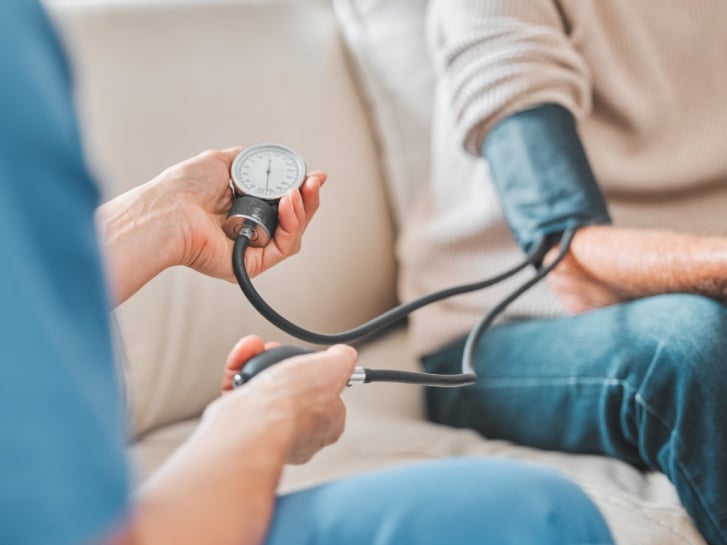We know about the benefits to patients of cardiac rehabilitation – it saves lives, improves quality of life and reduces readmissions – but those of us who work in this area face a real challenge.
For more than 20 years uptake of phase III cardiac rehab across the UK has been stuck at around 50 per cent. That means half the patients who could benefit are not doing so.
In 2019, NHS England set a target for these services to achieve an 85 per cent uptake by 2028 (NHS: The Long Term Plan). But how do we do this?
In 2024, British Heart Foundation (BHF) took on the challenge with a 12-month pilot with staff from Aneurin Bevan University Health Board (ABUHB) in The Grange University Hospital, South Wales. Our aim was to increase the uptake of phase III cardiac rehab.
Uptake of phase III cardiac rehab in the UK has been stuck at around 50 per cent
In that year 8,144 patients in Wales were diagnosed with acute coronary syndrome (ACS) or heart failure. Of these, 51 per cent with ACS and just 16.6 per cent with heart failure started phase III cardiac rehab.
Clinicians agreed that once patients attended their first assessment, they usually stayed and completed the programme.
The problem was getting patients to start.
There are numerous reasons why we see a drop off from phase II before patients are discharged and phase III that is offered after discharge: the location of classes, patients not understanding the benefits, lack of nursing staff, and lack of knowledge of this phase among ward staff.
Our pilot had a simple idea at its heart: we aimed to educate patients about cardiac rehab using BHF information posters displayed in cardiology wards.
This was so information about cardiac rehab was readily available during the often lonely and nerve-wracking hospital stay following their cardiac event.
Posters in cardiology wards
A series of posters were developed in English and Welsh with a QR code. When scanned the patient was directed to BHF information that explained what cardiac rehab is, its benefits and why it’s an important part of the recovery process.
The posters were put up on the walls of the cardiology ward for patients to scan. We tried 3 approaches:
- Ward A: cardiac nurses sat with the patient, scanned the code and explained the importance of cardiac rehab.
- Ward B: posters were put up and patients decided if they wanted to scan the QR code.
- Ward C: no posters and no change in practice (control group).
Results from our pilot showed that in 2023, before the project, the wards had an uptake to phase III cardiac rehab of less than half (47 per cent) which was close to the Wales average of 51 per cent.
This increased to almost three quarters at 73 per cent in 2024, with almost 200 more patients attending cardiac rehab.
Cardiac rehab 'blueprint for success'
These figures included the ‘control’ ward which had no posters, so it is reasonable to expect the results would have been even better if all 3 wards had posters.
The results exceeded our expectations and shows that educating patients about the importance and benefits of cardiac rehab before they are discharged from hospital can dramatically increase the likelihood of them attending phase III sessions.
The pilot project could provide a blueprint for success in sites not only in Wales, but the UK, to replicate.
I presented these findings to the 6 other health boards in Wales, and am delighted to say it was well received and all 6 services will be contacting their cardiology wards to implement the same steps we did, and will hopefully achieve the same results.
I’d like to thank the cardiac rehab and ward staff at ABUHB. And to give a special shout out to Joe Sankey who helped me get this idea off the ground in 2023, and helped me throughout the pilot.
The project is now being rolled out across Wales and Northern Ireland, and I will be presenting the results at the next British Association Cardiovascular Prevention & Rehabilitation annual conference in Glasgow in October 2025.
- To find out more about the initiative, please contact the project lead Hassan Al-Kaabi.






